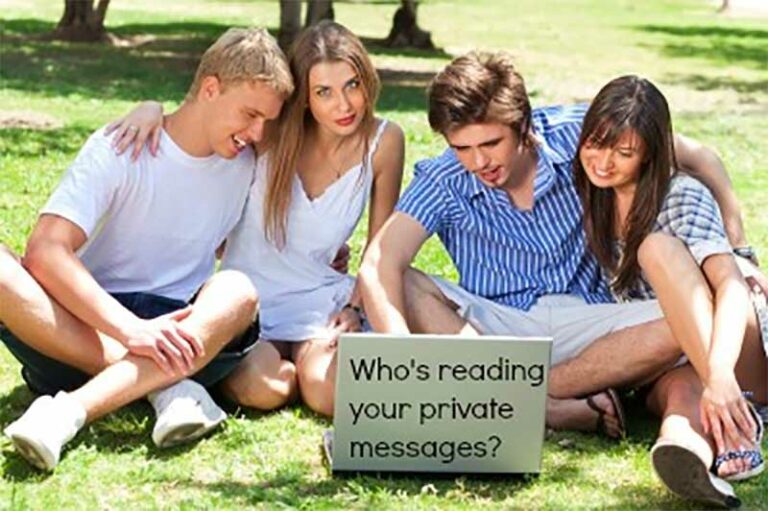Bloggers, parents, friends… we’re all involved in social media. Whether we’re on Facebook, Twitter, Pinterest, or just sending an email, every time we type and hit “post” or “send,” it’s inscribed in the waves of the Internet.
As we all know, there have been several instances of “private” things on Facebook not staying private lately. There have been Facebook private messages showing up on Facebook walls. There have been concerns (not proven) of private group comments showing up in feeds (note, Melanie is updating the linked post today). Several times, in other groups, people have copied and pasted conversations onto their blogs and into emails and shared them outside groups.
It’s not just Facebook. It happens in texting when you accidentally text the wrong person. Or when your private text message is shared with someone else. It happens on MySpace. Twitter. Forums. Blogs. It can probably even happen on Moshi Monsters and Club Penguin. My point: what you mark as private might not stay private forever.
Digital imprint ownership laws: there aren’t any
Copyrights transfer to the public domain 70-120 years post publishing. The other night, I had a dream, or nightmare, that a new law was written giving a lesser time span for online media. But, actually, what you’re social sharing may not have a copyright. When does your privacy on your digital imprint run out? Ironically, I started searching for an answer this morning and found that just yesterday, c|net posted a story: Who Controls Your Digital Assets Post-Mortem?
Virtually no law regulates what happens to a person’s online existence after his or her death. This is true even though individuals have privacy and copyright interests in materials they post to social networking sites.
Ladies. Gentlemen. Children. As of today, you may have something in “private,” but it’s not locked down. What you say, what you post, what you say to each other in emails… it can all be shared: today, tomorrow, in sixty years. Not only are you opening yourself to a possibility of giving yourself a bad name when you accuse people of things in emails or when you post inappropriate things in Facebook groups, messages, or your wall, or when you post on Pinterest, Twitter, anywhere… You also give a bad name to those involved and to the groups and associations of which you are a member.
Stop and Think
I feel like I’m back in my 4th-grade classroom, but this needs to be said: Stop and think before taking action. Stop before you send someone a nasty email. Stop before you post something that has nothing to do with business in a business-related group. Stop before you accuse someone. Stop before you share your innermost secrets.
Think. What you say and do gets around.
What you say online effects you. Forever.
And if you’re in this field professionally, keep in mind that there are eyes everywhere. People talk. In the case of bloggers: bloggers talk to marketers. Bloggers are marketers. Marketers talk to marketers. They recommend others for campaigns. In the case of students: people look at your Facebook wall before they hire you for a job before they accept you into college. Yesterday, I visited a Facebook wall before hiring a new babysitter. Last month, I Google searched my son’s teacher’s name before school started.
Friends, I know of a person who was not hired for a job because of one Facebook status 3 years ago. I know of bloggers who were cut from campaigns because of writing a harsh email that replied all. Another sent a private email, calling someone rude. That email was shared in a private group.
You can’t put the toothpaste back into the tube.









